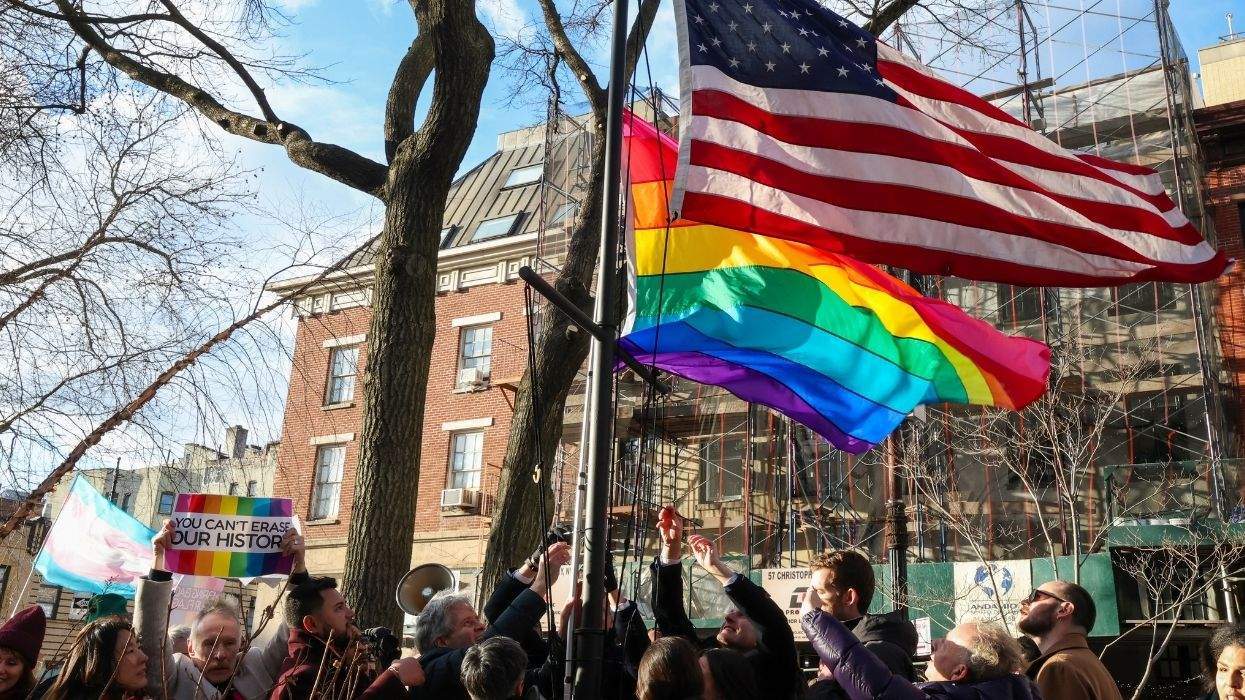A lesbian's employment discrimination case, testing whether federal civil rights law banning sex discrimination includes sexual orientation, is being appealed to the U.S. Supreme Court.
Lambda Legal announced today that it will ask the high court to hear the case of Jameka Evans, whose lawsuit says she suffered harassment and discrimination at her job as a security guard at Georgia Regional Hospital in Savannah and was eventually forced out because she's a lesbian and gender-nonconforming.
In March a three-judge panel of the U.S, Court of Appeals for the Eleventh Circuit, in a 2-1 ruling, upheld a lower court's dismissal of Evans's suit. The judges did not dispute the facts of the case, but the majority said they were bound by precedent that Title VII of the Civil Rights Act of 1964, which prohibits sex discrimination, does not cover discrimination based on sexual orientation. Lambda Legal, representing Evans, asked the full court to rehear the case, but today it declined to do so, leaving Lambda no option but to go to the Supreme Court.
"We plan to take this to the Supreme Court. This extremely troubling decision does not slow the momentum that is building behind our efforts to combat employment discrimination against lesbian, gay, and bisexual workers in the courts," said Greg Nevins, counsel and employment fairness strategist for Lambda Legal, in a press release.
"We will continue to press the legally correct argument, recognized by so many other courts, that the Civil Rights Act protects all workers against sexual orientation discrimination, whether they are gender-conforming in particular ways or not."
There's no guarantee that the Supreme Court will take the case, but there is currently what is known as a "circuit split" on the question of whether Title VII covers sexual orientation discrimination. Federal appeals courts have issued conflicting rulings on the issue, which means there is increased likelihood that the high court will step in to settle the question, as it did with marriage equality.
In April the U.S. Court of Appeals for the Seventh Circuit became the first federal appellate court to rule that Title VII bans discrimination based on sexual orientation. The case involved Kimberly Hively, who was fired as an instructor at a community college after it became known she was a lesbian.
"Hively represents the ultimate case of failure to conform to the female stereotype (at least as understood in a place such as modern America, which views heterosexuality as the norm and other forms of sexuality as exceptional): she is not heterosexual," Chief Judge Diane Wood wrote for the court majority in the 8-3 decision. The appeals court sent Hively's lawsuit back to the trial court for rehearing based on the facts of the case, with the understanding that the law covers this type of discrimination, so it is now a matter of whether Hively and her lawyers can prove that the discrimination took place.
Also, in light of the ruling in Hively's case, the full U.S. Court of Appeals for the Second Circuit decided to rehear a case that a three-judge panel of the court rejected based on a narrower interpretation of Title VII, Zarda v. Altitude Express, a skydiving company on Long Island. Donald Zarda had claimed the company fired him for telling a customer he was gay. He died in a skydiving accident after filing the lawsuit, but his estate is continuing to pursue it.
Some lower courts have held that Title VII covers discrimination based on both sexual orientation and gender identity, and during President Obama's administration, the Department of Justice and the Equal Employment Opportunity Commission endorsed this interpretation of the law. Courts are still free to make different interpretations -- but the conflicting conclusions reached by the Seventh Circuit and the Eleventh Circuit increase the possibility that the Supreme Court will take up the issue.















Charlie Kirk DID say stoning gay people was the 'perfect law' — and these other heinous quotes
These are some of his worst comments about LGBTQ+ people made by Charlie Kirk.